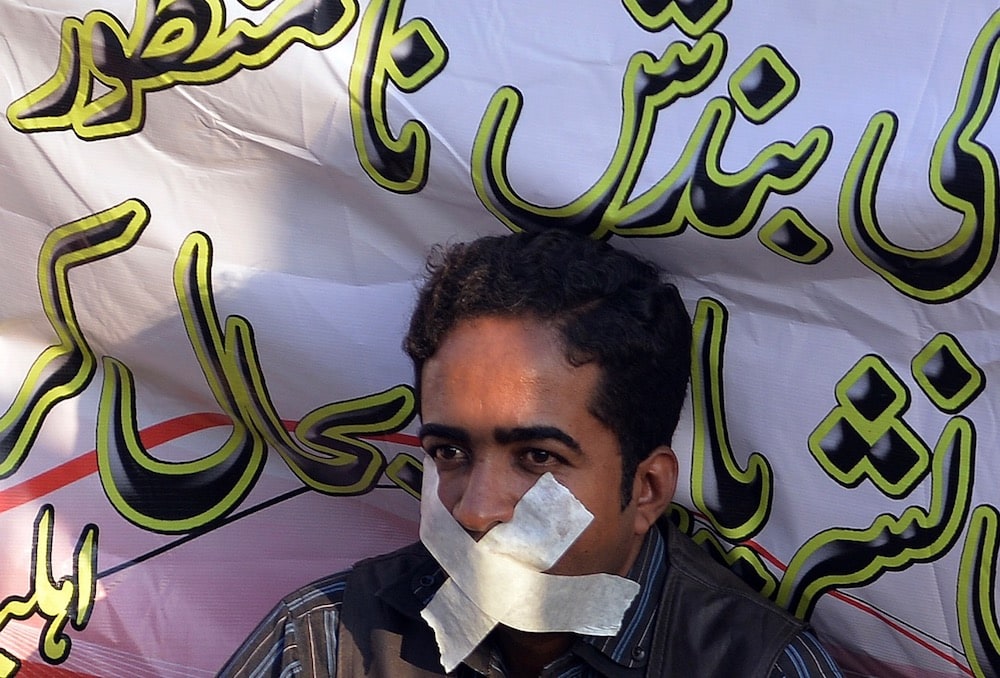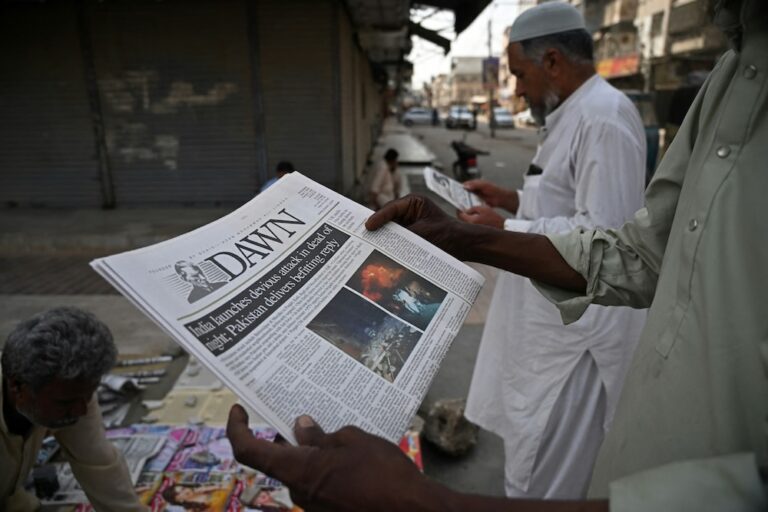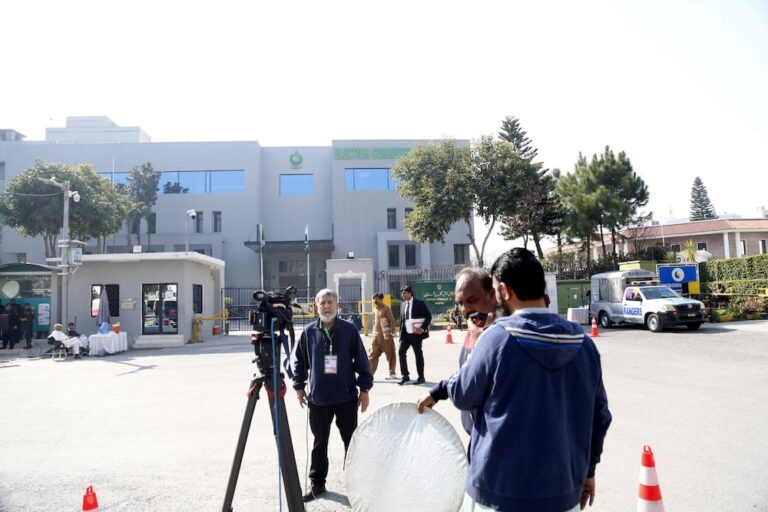Pakistan Press Foundation said that the media should be given room for self-regulation in combating disinformation.
This statement was originally published on pakistanpressfoundation.org on 8 August 2023.
Pakistan Press Foundation (PPF) welcomes the decision of the government to withdraw the Pakistan Electronic Media Regulatory Authority (Amendment) Bill, 2023, days after it was passed by the National Assembly. Amongst the proposed changes in the amendment bill was the inclusion of a definition for disinformation and misinformation and the compulsion on broadcasters not to air disinformation.
Information Minister Marriyum Aurangzeb on August 7, told the Senate Standing Committee on Information and Broadcasting that the amendment bill had been withdrawn after concerns from the journalists’ community, Aaj reported.
On July 21, the National Assembly Standing Committee on Information and Broadcasting unanimously approved the amendment bill, Dawn reported. The NA passed it on August 2. On August 5, the Senate referred it to the standing committee “for further refinement and improvement in response to the concerns raised by the senators,” Express Tribune reported.
The amendment bill added definitions for misinformation and disinformation, among other amendments, including clauses regarding the payment of salaries to media workers.
As per the amendment bill, disinformation was defined as “verifiably false, misleading, manipulated, created or fabricated information which is disseminated or shared with intention to cause harm to the reputation of or to harass any person for political, personal or financial interest or gains without making an effort to get other person’s point of view or not giving it proper coverage and space but does not include misinformation.”
Misinformation was defined as “verifiable false content or information that is unintentionally disseminated or shared.”
In the amendment bill, under Section 20, broadcasters were now required not to air disinformation.
Amongst others, the proposed amendments included adding “authentic news” to the purpose of PEMRA to “enlarge the choice available to the people of Pakistan in the media for authentic news, current affairs, religious knowledge, tolerance, art, culture, science, technology, economic and energy development, social sector concerns, music, sports, drama, children content and other subjects of public and national interest.”
PPF was concerned that the state-mandated control of disinformation in the amendment bill may result in the misuse of the law to label news critical of or unacceptable to the government, State, or others in positions of power as “disinformation” and to target journalists on this basis. While there is no doubt about the challenge presented by disinformation and misinformation globally, the media should be given room for self-regulation rather than imposing more state-mandated guidelines.
The bill also included protection against the non-payment of salaries to media workers, the inclusion of two honorary members – one from broadcasters and one from the Pakistan Federal Union of Journalists (PFUJ) – as members of the Authority, and the delegation of responsibilities to the chairman, member, or officer of PEMRA provided that the delegation does not include the power to grant, revoke or cancel a license except for cable TV or to suspect the license of a broadcaster.
The Pakistan Broadcasters Association (PBA) said that “most” of the amendments had been made in consultation with stakeholders.
“These amendments were necessitated to protect workers’ rights and to ensure that employees get paid their legitimate dues on time and as per the laws of the country. Some amendments were also essential for the survival of the electronic industry and to deal with the element of fake news,” PBA Executive Director Muhammad Ali Butt said in a statement.
The PFUJ welcomed some sections of the amendment bill and asked the government and political parties to “widen the scope of consultations to address the concerns of working journalists regarding punishments over the issue of disinformation and misinformation,” The News reported, adding that PFUJ President Afzal Butt and Secretary General Arshad Ansari had said that this should not be made part of the amendment bill till the consultation process was completed.
Representing another faction of the PFUJ, President GM Jamali and Secretary General Rana Mohammad Azeem said that there were “many points” in the amendment bill that could be used against journalists and “harm the freedom of expression,” the IFJ reported, adding that they demanded that a “complete service structure” for employees be developed not just payment of timely salaries.
The Human Rights Commission of Pakistan (HRCP) had expressed concern about the amendment bill. HRCP stated that this bill “strays into censorship territory and may allow powerful groups or individuals to stonewall journalists seeking both sides of a story.”



